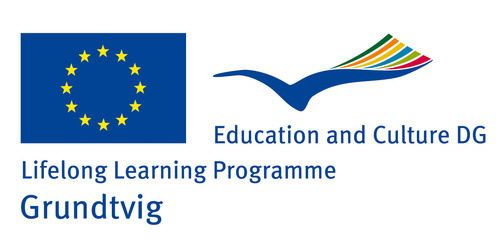Playing Nyckelharpa: an orchestral experience between European folk music and contemporary compositions

[b][size=medium][color=0000CC]Playing Nyckelharpa: an orchestral experience between European folk music and contemporary compositions[/color][/size][/b]
[b]Workshop Reference number: 2012-1-IT2-GRU13-37358 Venue: Forlimpopoli (FC) Date of the Workshop: 08/06/2013 – 08/11/2013[/b]
Questo è il titolo del nuovo progetto Europeo propostto dalla Scuola di Musica Popolare di Forlimpopoli nell’ambito del programma Grundtvig e approvato dalla comunità europea. Di seguito il testo di presentazione del progetto così come pubblicato sul catalogo Grundtvig 2013
 Subject area: Cultural heritage
Subject area: Cultural heritage
Artistic education, also including Arts and Crafts and Music
Pedagogy and didactics
Working language(s): EN
Target Group + Translation:
From 6th to 11th August 2013 Forlimpopoli, Italy Invited to this workshop are musicians of
different levels, in particular nyckelharpa players as well as composers writing contemporary music for nyckelharpa on a basis of folk music. The nyckelharpa is a bowed instrument with keys to
change the pitch. One of the earliest depictions (1408) has be found in Siena, Italy. Since the
Baroque period, the instrument was played only in the region of Uppland in Sweden as a folk
instrument.
In the 20th century, the nyckelharpa has been preserved from an impending final demise
primarily by two exceptional Swedish musicians: August Bohlin (1877 – 1949), who improved the
instrument technically to be played fully chromatically, and Eric Sahlström (1912 – 1986), who set an entirely new musical stimulus with an improved technique and many own compositions. Today,the nyckelharpa is played worldwide by a fast increasing number of musicians and in more and more musical styles. Outside Sweden, there is no traditional nyckelharpa repertoire. In the pan-
European folk revival since the 70s, many musicians composed new tunes on traditional roots.
Since Bartok and Kodaly, contemporary composers often rely on folk music of their countries.
These different trends we will assemble in a verbal, medial and musical exchange about folk music in the respective home countries of the participants and contemporary compositions with their specific challenges of playing technique. Thus we contribute to a European repertoire for the nyckelharpa that does not neglect the roots but a the same time points a musical way for the future.
At the end of the workshop, results of the musical work will be presented in a concert. Public will be media invited to report. The workshop is organized by the Scuola di Musica Popolare in Forlimpopoli, Emilia Romagna, northern Italy. During the workshop, up to 25 participants will have accommodation in the local hotel, will be catered at a high level by the local gastronomy and work together in the well suited classrooms of the Scuola di Musica Popolare. The cost of accommodation, meals and travelling in the agreed framework will be covered. The participants are expected to contribute obligingly and enthusiastically whilst the workshop as well as achieve welldefined
and manageable tasks in preparing and following up. Interested persons can apply for participation.
The organizer selects the participants on the basis of criteria so that a productive
working relationship appears to be possible.
Invited to this workshop are musicians of different levels, in particular nyckelharpa players as well as composers writing contemporary music for nyckelharpa on a basis of folk music. The nyckelharpa is a bowed instrument with keys to change the pitch. One of the earliest depictions (1408) has be found in Siena, Italy. Since the Baroque period, the instrument was played only in the region of Uppland in Sweden as a folk instrument. In the 20th century, the nyckelharpa has been
preserved from an impending final demise primarily by two exceptional Swedish musicians: August Bohlin (1877 – 1949), who improved the instrument technically to be played fully chromatically, and Eric Sahlström (1912 – 1986), who set an entirely new musical stimulus with an improved technique and many own compositions. Today, the nyckelharpa is played worldwide by a fast increasing number of musicians and in more and more musical styles. Outside Sweden, there is no traditional nyckelharpa repertoire. In the pan-European folk revival since the 70s, many musicians composed new tunes on traditional roots. Since Bartok and Kodaly, contemporary composers often rely on folk music of their countries. These different trends we will assemble in a verbal, medial and musical exchange about folk music in the respective home countries of the participants and contemporary compositions with their specific challenges of playing technique. Thus we contribute to a European repertoire for the nyckelharpa that does not neglect the roots but a the same time
points a musical way for the future. The workshop is organized by the Scuola di Musica Popolare
in Forlimpopoli, Emilia Romagna, northern Italy. During the workshop, up to 25 participants will
have accommodation in the local hotel, will be catered at a high level by the local gastronomy and work together in the well suited classrooms of the Scuola di Musica Popolare. The cost of
accommodation, meals and travelling in the agreed framework will be covered. The participants are
expected to contribute obligingly and enthusiastically whilst the workshop as well as achieve welldefined and manageable tasks in preparing and following up. Interested persons can apply for participation. The organizer selects the participants on the basis of criteria so that a productive working relationship appears to be possible.
Main activities Programme + Programme translation:
Workshop Organiser: Associazione Culturale Scuola di Musica Popolare
Contact details: Piazza Fratti, 2
47034 FORLIMPOPOLI
IT-ITALY
E-mail: info@musicapopolare.net
http://www.musicapopolare.net














